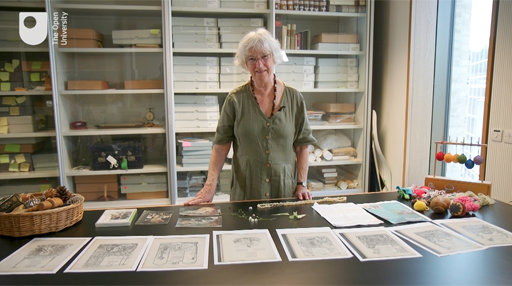4 Reflective activity
Now you have reached the end of Session 2, it’s a good time to reflect on what you have learned so far. In particular, you might like to consider if you have noticed how the outdoor environment is perceived in a certain way for very young children. Remember we are thinking specifically about those children aged birth to two years old. Once again there are some questions below that may help you in your thinking. You can record your thoughts in your Learning journal or in the text box in the activity.
Before you have a go at answering the questions, watch this short video of Tina Bruce describing an observation of a young child outside.

Transcript
TINA BRUCE: One of my favourite moments with a little boy who was just learning to walk, so he was crawling across grass. And he stood up and he did his little tottery walk because he was just learning to walk. And as happens, flopped down, and he went right down and his little face was right near the grass and he just-- he gradually picked his head up a bit and he was still looking intently at the grass. And I thought, I wonder what's happening there.
So I bent over and we both had a jolly long look, and there was a worm just coming out of the grass. And he was absolutely fascinated. So those little songs that I--
(SINGING) There's a worm at the bottom of my garden, there's a worm at the bottom of my garden, there's a worm at the bottom of my garden, and he goes, wiggly, wiggly, wiggle!
Those sort of songs. Now, what Froebel did with these songs was to really build on real experience.
So he did not want things like blue cats or sparkly dogs in pictures. He's going for what's real because little children need to know what's real in order to start to imagine things that are not real and to pretend them. So that's a very big difference between Froebel and lots of other people. And he would agree with people like Montessori and Steiner.
We all agree. Real experience is what sets you up and actually allows you to be much more imaginative later on. So the creativity comes out of the real experience. So that worm was very, very important for him.
Activity 3 Reflecting on Session 2
- What did you find helpful about this session’s learning and why?
- What are the three main learning points you will take away from this session?
- What about your practice? Is there anything you are now going to change about your practice with young children if you are a parent, carer or practitioner?
